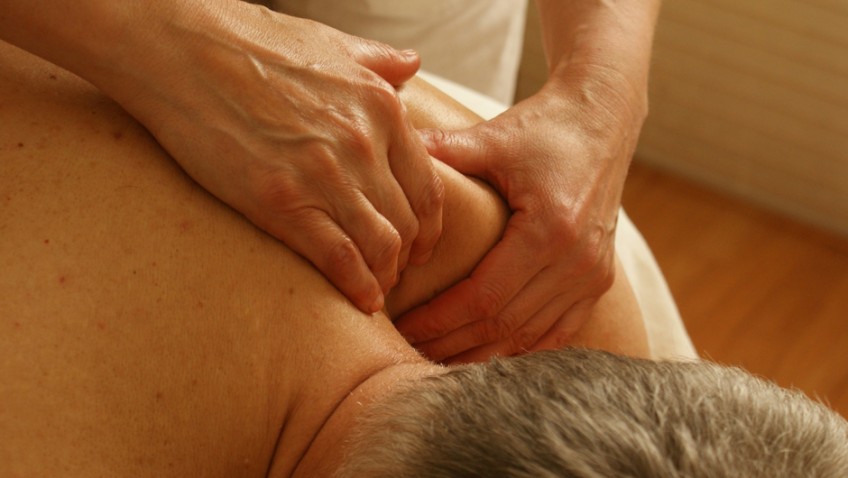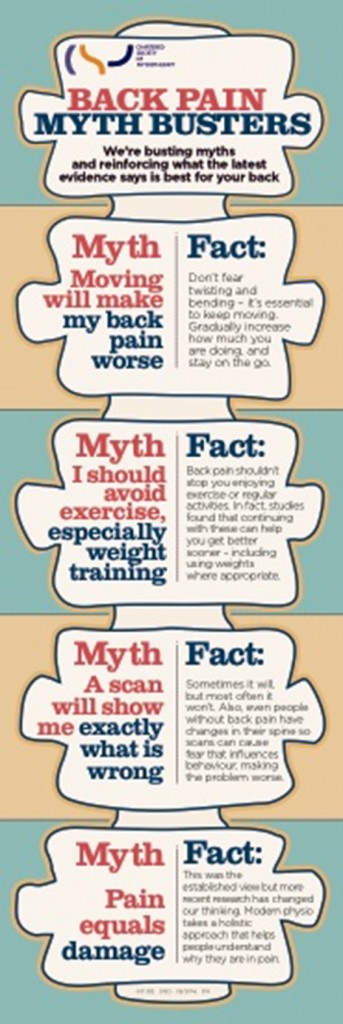Although it is true that some movements can be uncomfortable when you have back pain, it is well established that returning to movement and work as soon as you are able, is better for recovery and preventing recurrence than bed rest.
Widely-held myths about back pain are making people fear doing the very activities they need to do to help them get better, physiotherapists are warning.
Studies show the importance of remaining active and continuing with exercise, including weight training where appropriate, to help overcome back pain.
But new polling conducted by Opinium for the Chartered Society of Physiotherapy reveals how deep-rooted the fear of movement has become.
When asked which activities people would avoid if they had back pain:
- 46 per cent said bending
- 53 per cent said twisting
- 49 said exercise such as running or aerobics
- 65 per cent said weight training.
All results were slightly higher among the 61 per cent of people who said they had experienced, or currently have, back pain.
A new campaign from the Chartered Society of Physiotherapy now aims to bust the four biggest myths to help tackle what remains the leading cause of disability and sickness absence from work.
- Moving will make my back pain worse
- I should avoid exercise, especially weight training
- A scan will show me exactly what is wrong
- Pain equals damage
The survey showed nearly four in ten people believed a scan would show them what was wrong, including 60 per cent of those who had ongoing back trouble.
The reality is that while a scan may sometimes reveal the problem, most often it won’t.
Additionally, even people without back pain may have changes in their spine and seeing changes on a scan could lead to the same fear that causes exercise-avoidance, potentially making the problem worse.
The chair of the CSP, Catherine Pope, said:
‘It’s understandable why these myths are held – indeed, some would have been the established view in healthcare before new research came out.
‘But as the evidence moves on, so must we and that’s why it’s so important that people understand more about what causes back pain and how best to tackle it.
‘In most cases it is essential to keep moving and continue doing regular activities, such as exercise, so that what may often be a minor problem doesn’t develop into something more serious.’
Back pain globally causes more disability than any other condition.
In the UK, it is a leading cause of sickness absence and estimated to cost the economy £5bn a year.
For more information on the campaign, look out for leaflets in health centres or visit www.csp.org.uk/mythbusters.






